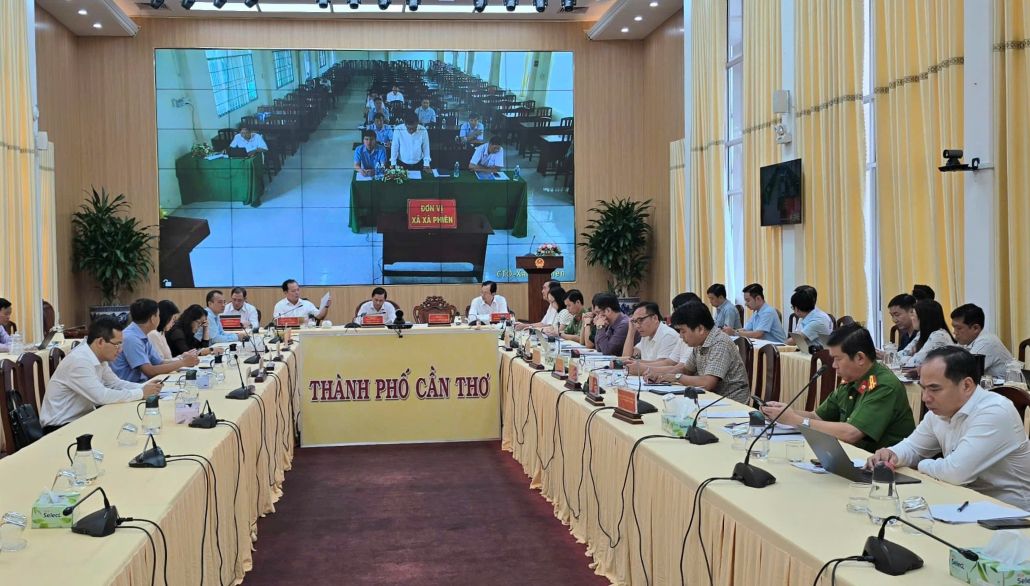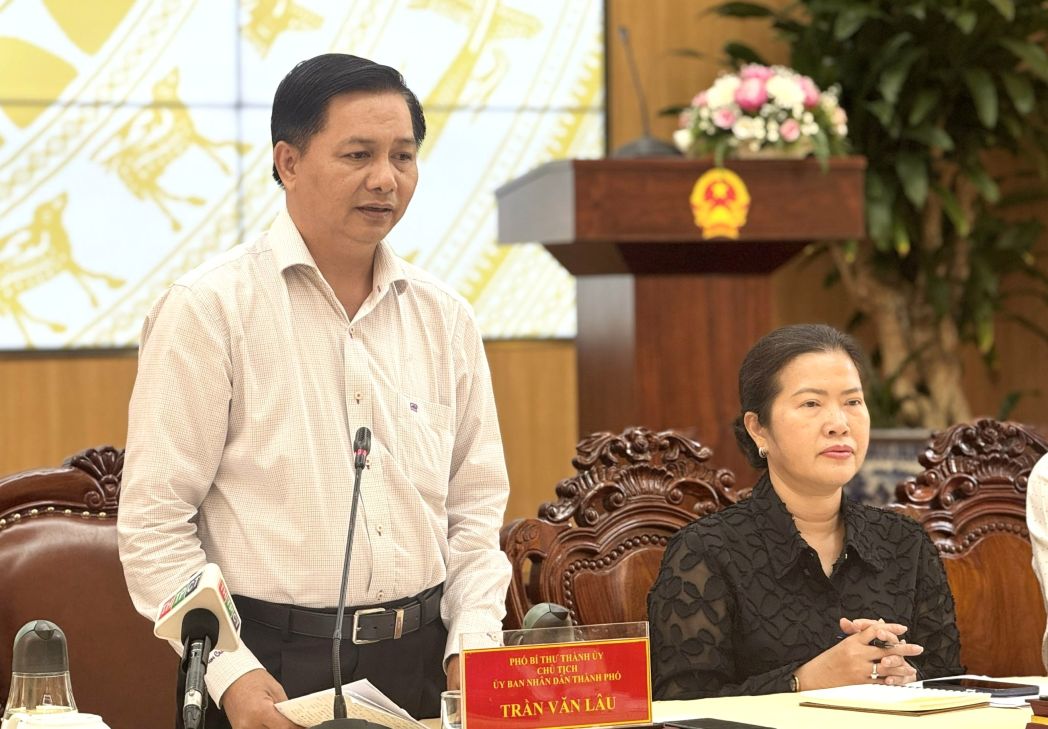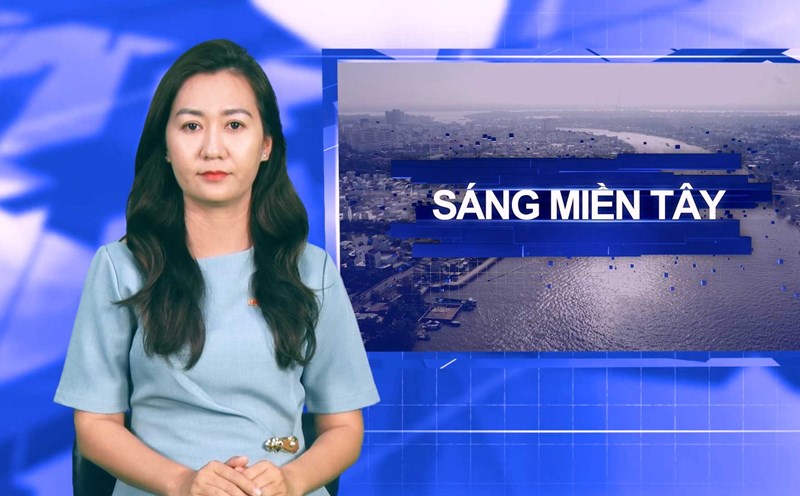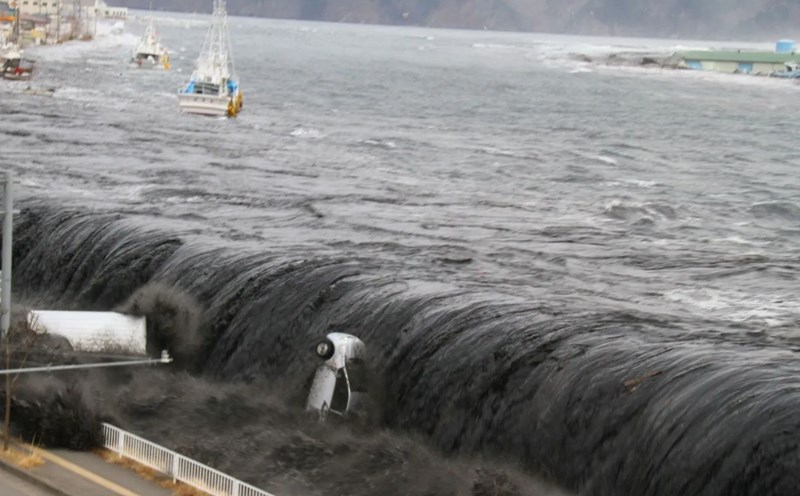On the morning of July 5, Chairman of Can Tho City People's Committee Tran Van Lau chaired an online meeting with 103 communes and wards to listen to a report on the situation after 4 days of implementing the merger of commune-level administrative units.

According to the report, currently, 103 new communes and wards have a total of 299 specialized departments (excluding Public Administration Service Centers). Of which, 8 communes and wards that are not merged still maintain stable operations, with 7 communes having 2 specialized departments and 1 commune not organizing specialized departments.
Information technology systems, shared platforms and technical infrastructure have been completely converted and officially connected to the National Public Service Portal from June 30, 2025. As of 4:00 p.m. on July 3, the system has received 1,249 online records and 1,502 direct records, with 535 records resolved.
Can Tho City has resolved the regime for 1,879 cases of joblessness; arranged 139 cars for public service for communes and wards. Of which, 38 units have been granted 2 vehicles, 63 units have 1 vehicle, the remaining 2 units have not been granted a vehicle.
The total support budget from the Central Government for 3 provinces and cities (Can Tho, Hau Giang, Soc Trang) is 280 billion VND. This amount is expected to be used to support cadres, civil servants, public employees and workers after the arrangement of administrative units, as well as support the repair and renovation of headquarters. It is expected that cases that are not provided with public housing or shuttle buses will be supported with 4 million VND/person/month. The City People's Committee has also submitted to the City People's Council a temporary budget allocation for 2 months (July and August 2025) to ensure payment of salaries, allowances and essential expenses. The temporary allocation is 20 million VND/instance.

Speaking at the meeting, Chairman of Can Tho City People's Committee Tran Van Lau affirmed that the city will fully absorb opinions from the grassroots, assign specialized departments and branches to guide, inspect, urge and advise promptly to the People's Committee and the Standing Committee to resolve problems. Issues under the authority of the city will be handled quickly and clearly.
According to Mr. Lau, first of all, it is the personnel after the arrangement, many communes and wards still lack specialized staff. Arrangement in the wrong expertise can lead to risks and difficulties in capacity promotion. The Chairman requested to review and arrange appropriate personnel, "choose jobs to arrange people", if not suitable, transfer them to promote their strengths. Localities need to specifically report the personnel situation to make timely adjustments; urgently improve the organization of the apparatus, public service units and proactively propose the mobilization of staff when needed.
Regarding assets, after the merger, the amount of surplus assets is large. He requested localities to count, inventory and hand over to the Department of Finance for monitoring, to avoid waste. Regarding the working headquarters, if there is a need for conversion, the locality must have a clear proposal document, stating the reasons and specific replacement options.
The Chairman of Can Tho City also noted the need to equip public administrative service centers with equipment. According to him, it is not necessary to completely re- equip all 103 communes and wards, but it is necessary to carefully review and make the most of the equipment still in good use in localities with good facilities.
"What is still used well, we continue to use. As for equipment that is too old and does not meet the requirements, we should boldly propose replacements but must have a strict process," Mr. Lau directed.
Chairman of Can Tho City People's Committee Tran Van Lau emphasized that one of the extremely important issues after the merger is to maintain internal solidarity. He compared each commune and ward today to a "common house" when cadres are gathered from many different localities. Therefore, commune and ward leaders must be responsible for orienting thoughts, creating a working environment to support and help each other.
"If there is no solidarity and there is a distinction between one locality and another, it will be very difficult to work. The heads of communes and wards must take responsibility for any disunity," Mr. Lau emphasized.
Mr. Lau also requested that leaders of departments and branches pay more attention to the lives of civil servants and public employees, promptly grasp difficulties and propose appropriate support policies, creating a support for them to work with peace of mind, stick with and contribute long-term.











